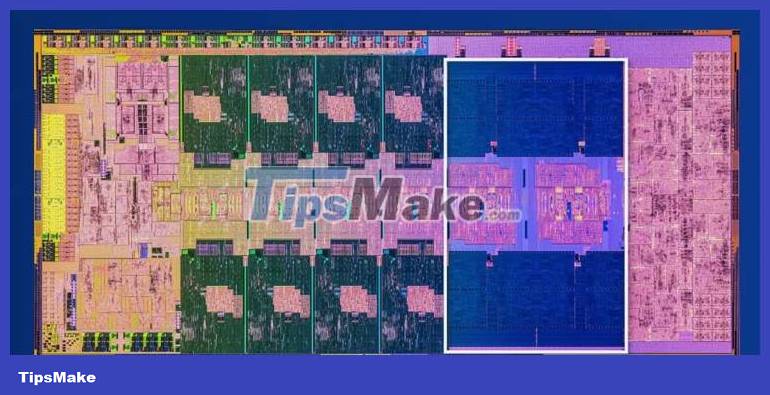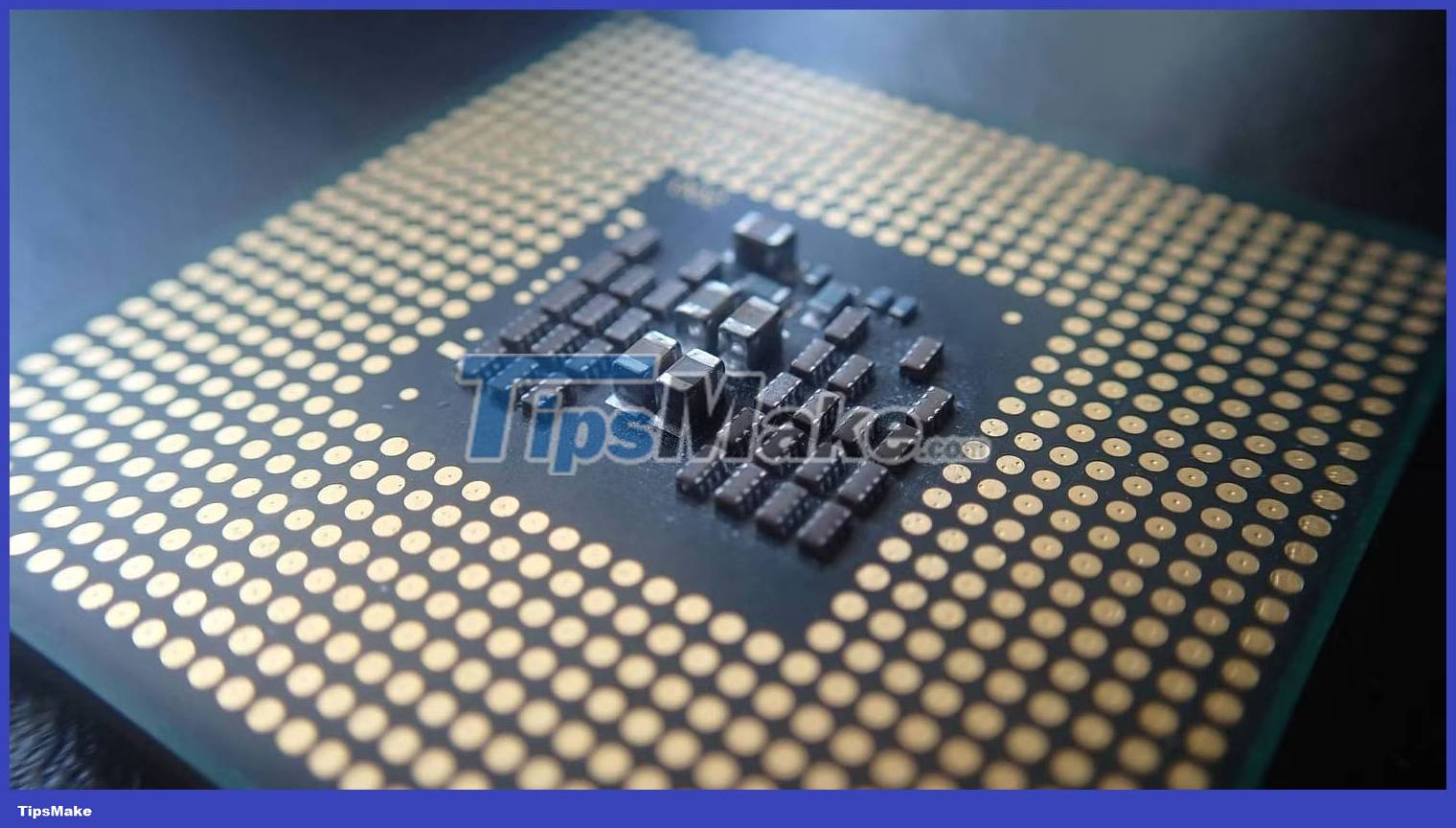6 reasons to avoid Intel's 14th generation CPU
Intel has announced the 14th generation Intel Core processors - the latest addition to the Intel processor family on the 7nm Intel 4 processor node. These chips are said to be the best, most power-efficient chips Intel offers, but many people are disappointed with their performance.
So, if you're an Intel fan, here's why you should skip the 14th generation processors and wait for the 15th generation instead.
1. Intel's 14th gen brings minimal spec upgrades over 13th gen chips
One of the reasons you upgrade to a processor is because it has significant advantages over the processor you currently have. However, if you have a 13th generation Intel processor or newer, the latest 14th generation chips don't offer a huge advantage, especially if you're still using the same Core variant you have now, like Intel Core i5 or i7.
Let's compare the specifications of the three latest generations of Intel Core i9 to see their differences.
| Processor | Intel Core i9-14900K | Intel Core i9-13900K | Intel Core i9-12900K |
|---|---|---|---|
| Maximum Turbo Frequency | 6.0 GHz | 6.0 GHz | 5.2 GHz |
| Processor Core (P Core + E Core) | 24 (8P + 16E) | 24 (8P + 16E) | 16 (8P + 8E) |
| Total number of processing threads | 32 | 32 | 24 |
| Smart Cache (L3) | 36MB | 36MB | 30 MB |
| Maximum memory speed | DDR4-3200 DDR5-5600 | DDR4-3200 DDR5-4800 | DDR4-3200 DDR5-4800 |
| PCIe 5.0 lane | 16 | 16 | 16 |
| PCIe 4.0 lane | 4 | 4 | 4 |
| Integrated graphics | Intel UHD 770 | Intel UHD 770 | Intel UHD 770 |
While Intel's 14th generation has some advantages over 12th generation chips in terms of core count and maximum frequency, its only advantage over 13th generation is in maximum memory speed Slightly faster with DDR5 RAM.
You can also check out the differences between the more affordable Intel Core i5 generations.
| Processor | Intel Core i5-14600K | Intel Core i5-13600K | Intel Core i5-12600K |
|---|---|---|---|
| Maximum Turbo Frequency | 5.3 GHz | 5.1 GHz | 4.9 GHz |
| Processor Core (P Core + E Core) | 14 (6P + 8E) | 14 (6P + 8E) | 10 (6P + 4E) |
| Total number of processing threads | 20 | 20 | 16 |
| Smart Cache (L3) | 24 MB | 24 MB | 20 MB |
| Maximum memory speed | DDR4-3200 DDR5-5600 | DDR4-3200 DDR5-4800 | DDR4-3200 DDR5-4800 |
| PCIe 5.0 lane | 16 | 16 | 16 |
| PCIe 4.0 lane | 4 | 4 | 4 |
| Integrated graphics | Intel UHD 770 | Intel UHD 730 | Intel UHD 730 |
Even the low-end Core i5 processor has some changes compared to the 13th generation chip.
2. Intel's 14th and 13th generation i9 and i5 processors have the same number of cores

One of the ways you can measure performance improvements between processor generations is by its core count. In general, the processor core is the part of your computer that reads and executes instructions.
So the more cores you have, the faster your processor will run. This, in turn, will make your computer perform faster unless you encounter a bottleneck. Intel has gone further by integrating P and E cores into its chips for powerful yet power-efficient processors.
However, if you look at the comparison chart above of the 13th generation and 14th generation chips, you will see that the i9 and i5 processors have the same number of cores. Only the Intel Core i7-14700K has the number of cores increased from 16 (8P + 8E) to 20 cores (8P + 12E).
3. 13th generation and 14th generation Intel chips use the same architecture

Processor architecture is how the CPU is made. Major architectural changes could be game-changers, making processors more powerful and efficient. This was most evident with the 12th generation Alder Lake processors when Intel introduced the P and E cores in its chips.
One of the things you need to know about the 13th Gen Raptor Lake processors is that it is primarily an improvement over the 12th Gen Alder Lake processors. But the 14th Gen Intel chip is also an improvement. built on Raptor Lake processors.
Even Intel confirmed this when calling the 14th generation processor "Raptor Lake Refresh". However, let's look at results from various testers to see how the 14th generation Intel chip performs compared to other processors.
4. They don't perform much better than 13th generation Intel chips
Of course, no matter what the processor manufacturer says, the best way to judge a chip's performance is to see its real-world results. So here's how Intel 14th Gen processors perform on Intel 13th Gen chips and from competing AMD products.
First, check out Gamer Nexus' Intel Core i9-14900K test, linked above. Nexus Gamer used a computer with the following specifications for testing: RTX 4090 Strix GPU and Corsair DDR5-6000 RAM.
|
| Intel Core i9-14900K | Intel Core i9-13900K | AMD Ryzen 9 7950X3D |
|---|---|---|---|
| Performance testing | |||
| Blender 3.64 Render (seconds / lower is better) | 7.3 | 7.3 | 6.7 |
| 7-Zip compression test (millions of commands per second / higher is better) | 190,613.3 | 189,432.5 | 194,953.5 |
| Adobe Premiere (Puget Suite composite score / higher is better) | 842 | 828 | 832 |
| Game Test (Average FPS / The higher the better) | |||
| Rainbow Six Siege @ 1080p | 655.9 | 645.2 | 694.1 |
| Rainbow Six Siege @ 1440p | 511.2 | 511.0 | 520.0 |
| F1 2023 @ 1080p | 422.1 | 417.5 | 506.5 |
| F1 2023 @ 1440p | 392.8 | 389.5 | 400.1 |
| Baldur's Gate 3 @ 1080p | 110.2 | 107.8 | 124.9 |
| Baldur's Gate 3 @ 1440p | 107.6 | 106.0 | 121.7 |
| Final Fantasy XIV @ 1080p | 270.0 | 262.0 | 214.2 |
| Final Fantasy XIV @ 1440p | 269.0 | 261.8 | 212.6 |
| Starfield @ 1080p | 132.4 | 128.8 | 114.0 |
As you can see in the test results, the Intel i9-14900K performs slightly better than the previous generation versions. However, in many tests, AMD's Ryzen 9 7950X3D chip performed better than Intel's 13th generation and 14th generation products. Even though the 14900K has more cores and higher boost clock speeds, AMD 3D V-Cache gives the 7950X3D the edge.
Take a look at Hardware Unboxed's results (linked above) testing the i7-14700K against the competition. Hardware Unboxed used a PC equipped with an RTX 4090 Strix GPU and DDR5-6000/7200 RAM for this test for the AMD/Intel build.
|
| Intel Core i7-14700K | Intel Core i7-13700K | AMD Ryzen 7 7800X3D |
|---|---|---|---|
| Performance testing | |||
| Benchmark Cinebench 2024 (Multi-Core / the higher the better) | 1,982 | 1,665 | 1,124 |
| Benchmark Cinebench 2024 (Single-Core / the higher the better) | 130 | 125 | 122 |
| Blender Open Data 3.1.0 (samples per minute / higher is better) | 235 | 190 | 135 |
| Adobe After Effects (Puget Systems Benchmark / higher is better) | 1,455 | 1,412 | 1,251 |
| Game Test (Average FPS / The higher the better) | |||
| Baldur's Gate 3 @ 1080p | 153 | 148 | 178 |
| Hogwarts Legacy @ 1080p | 75 | 74 | 80 |
| Starfield @ 1080p | 105 | 97 | 91 |
| Cyberpunk 2077: Phantom Liberty @ 1080p | 166 | 163 | 186 |
| The Last of Us Part I @ 1080p | 181 | 177 | 181 |
| Star Wars Jedi: Survivor @ 1080p | 158 | 158 | 192 |
| Asserto Corsa Competizione | 171 | 162 | 223 |
| Spider-Man Remastered @ 1080p | 149 | 145 | 158 |
| Assassin's Creed Mirage Power | 196 | 189 | 228 |
According to test results, the i7-14700K performs much better in productivity tasks, especially in applications that take advantage of multiple cores. This is where the 14700 K's 20 cores (8P + 12E) shine, allowing it to outperform the 13700 K's 16 cores and the 7800X3D's 8 cores.
However, the story is similar when it comes to gaming. AMD's massive 3D V-Cache allows the 7800X3D to outperform the 13700K and 14700K chips in almost every game.
5. You probably don't need the latest 14th generation features

Besides better performance, the 14th generation Intel chip also adds features such as WiFi 7 (the latest WiFi standard), Thunderbolt 5 support, and AI-guided overclocking. These enable faster data transfer and help you get the most out of your processor.
However, WiFi 7 and Thunderbolt 5 are not yet widely used, and most users do not overclock their computers. So unless all your devices use these standards and you want to get the most out of your processor (which risks voiding your warranty), you probably don't need to. these things.
6. Intel's 13th generation chips are more affordable
| Processor | Launch price | Processor | Launch price |
|---|---|---|---|
| Intel Core i9-14900K | $599 | Intel Core i9-13900K | $589 |
| Intel Core i7-14700K | $419 | Intel Core i7-13700K | $409 |
| Intel Core i5-14600K | $329 | Intel Core i5-13600K | $319 |
The 14th generation Intel chips have a slight performance advantage over the previous generation, and their launch price is only $10 higher than the 13th generation chips. However, because the 13th generation chips have were a year old when the 14th generation chips launched, you could see they were much cheaper.
For example, you can buy the 13900K on Amazon for under $547 and the 13700K on Newegg for under $394. The 13600K is also available on Amazon for under $308.
While the price drop may seem small compared to the launch price of the 13th gen, you're still saving $20 to $50 over the 14th gen chip, and the performance difference is nearly unnoticeable. . You can then use the money you save for the things you want, like buying a quality mechanical keyboard.
You should read it
- ★ The generation of Intel CPU chip ever
- ★ What's the new generation of CPUs released by Intel?
- ★ Intel's 9th generation microprocessor can be released on October 1
- ★ Intel shook hands with AMD to release the 8th generation chip competing with Nvidia
- ★ Intel will unveil the 'new computing era' at IFA 2014